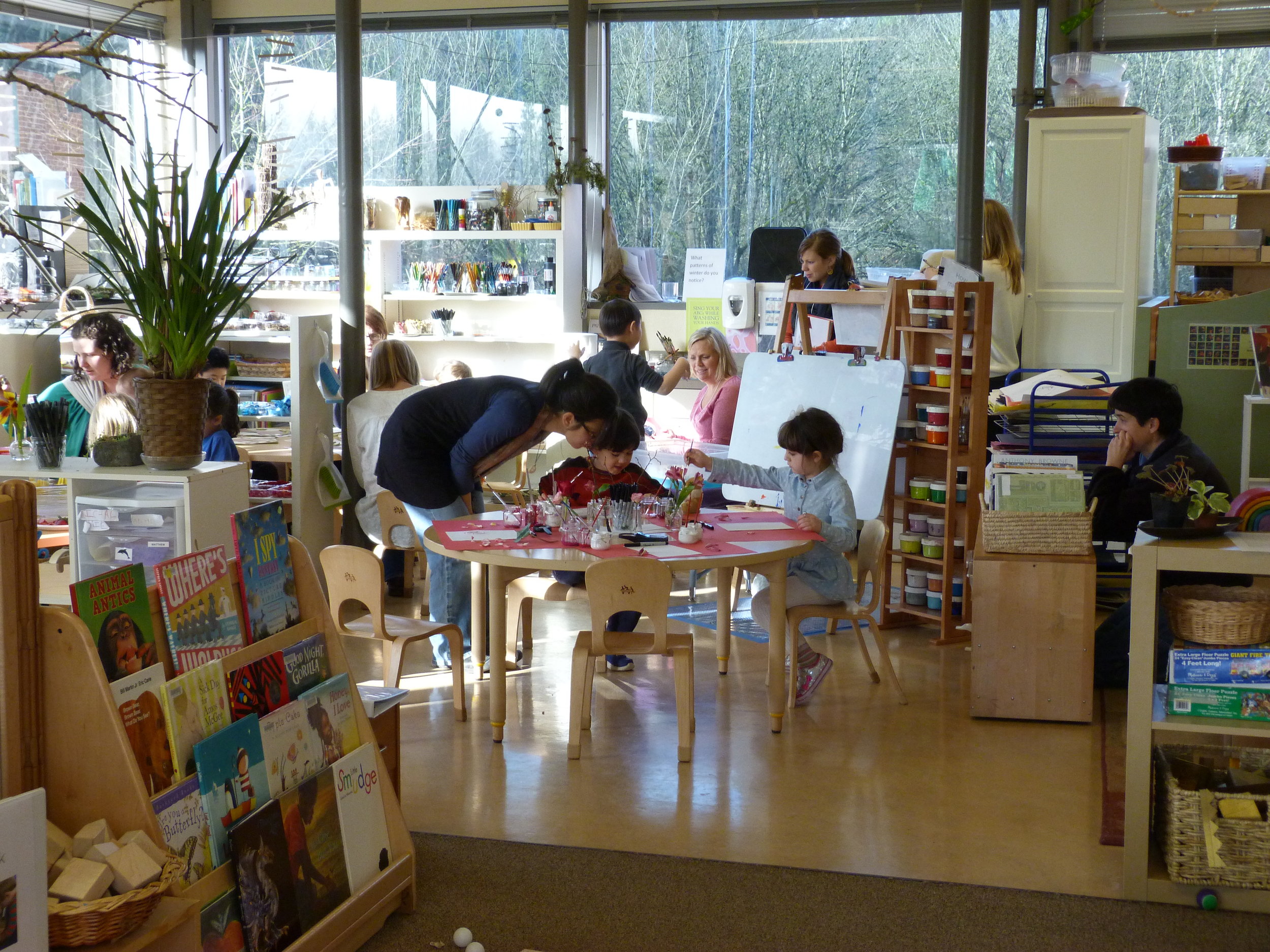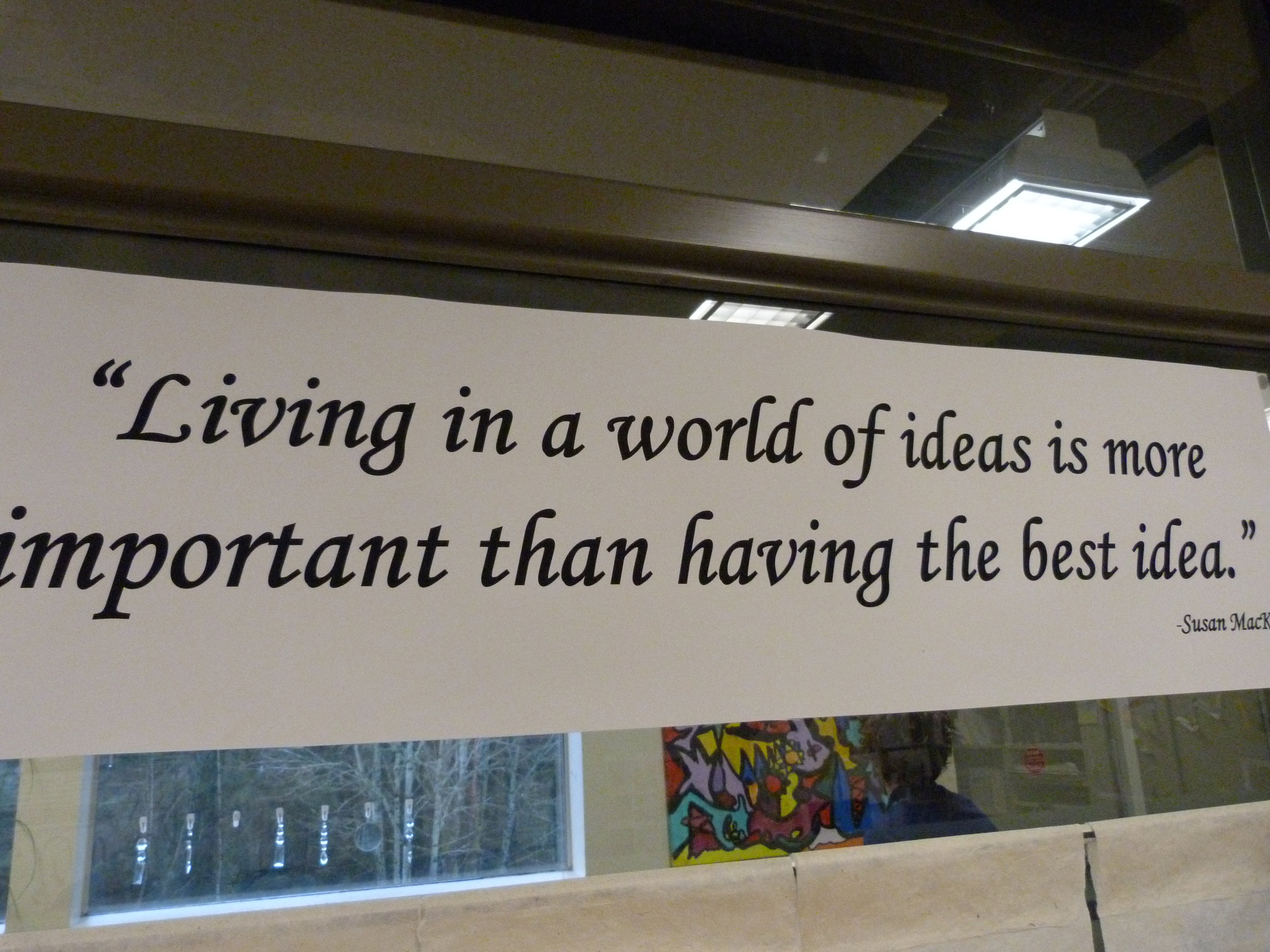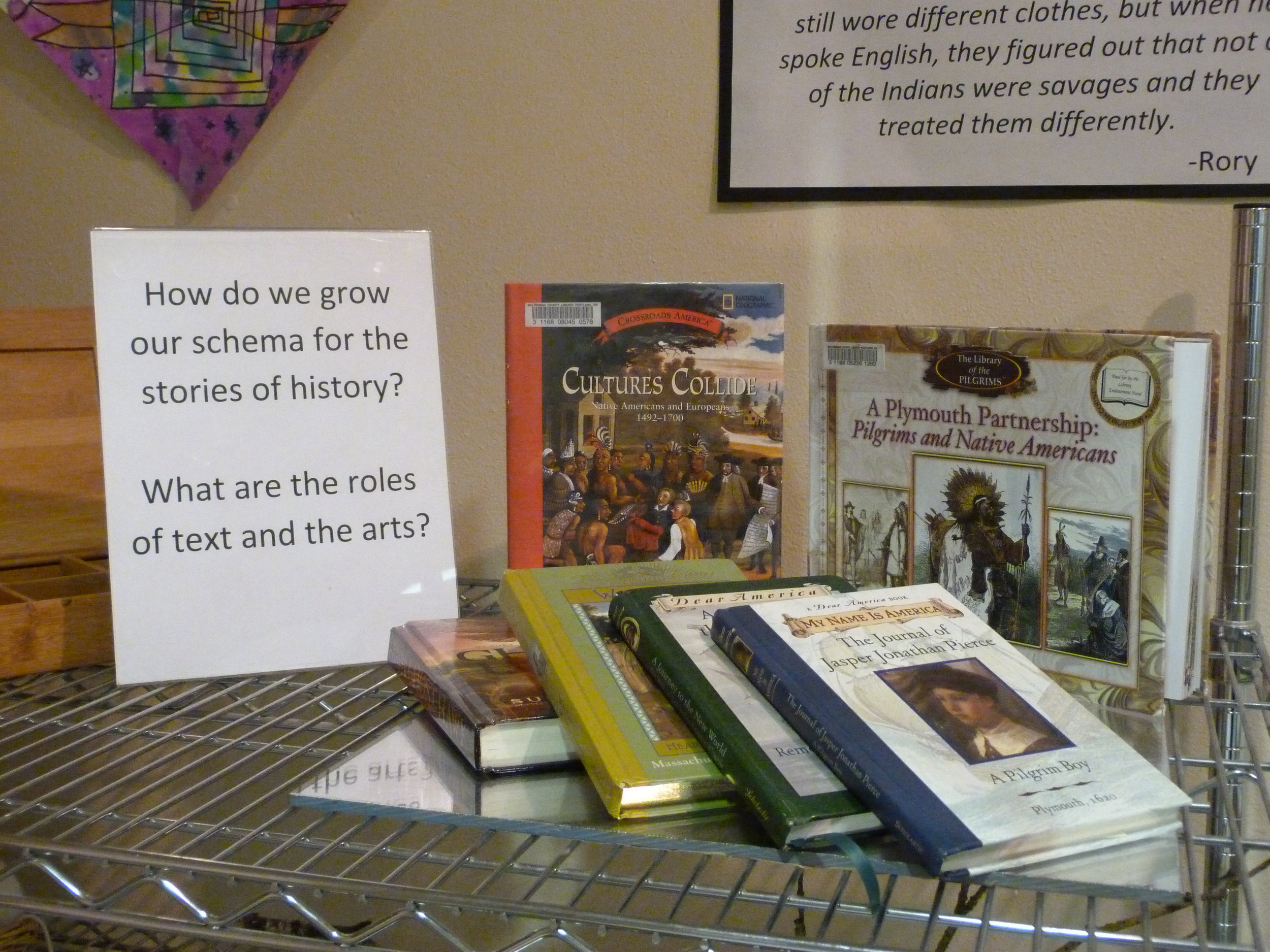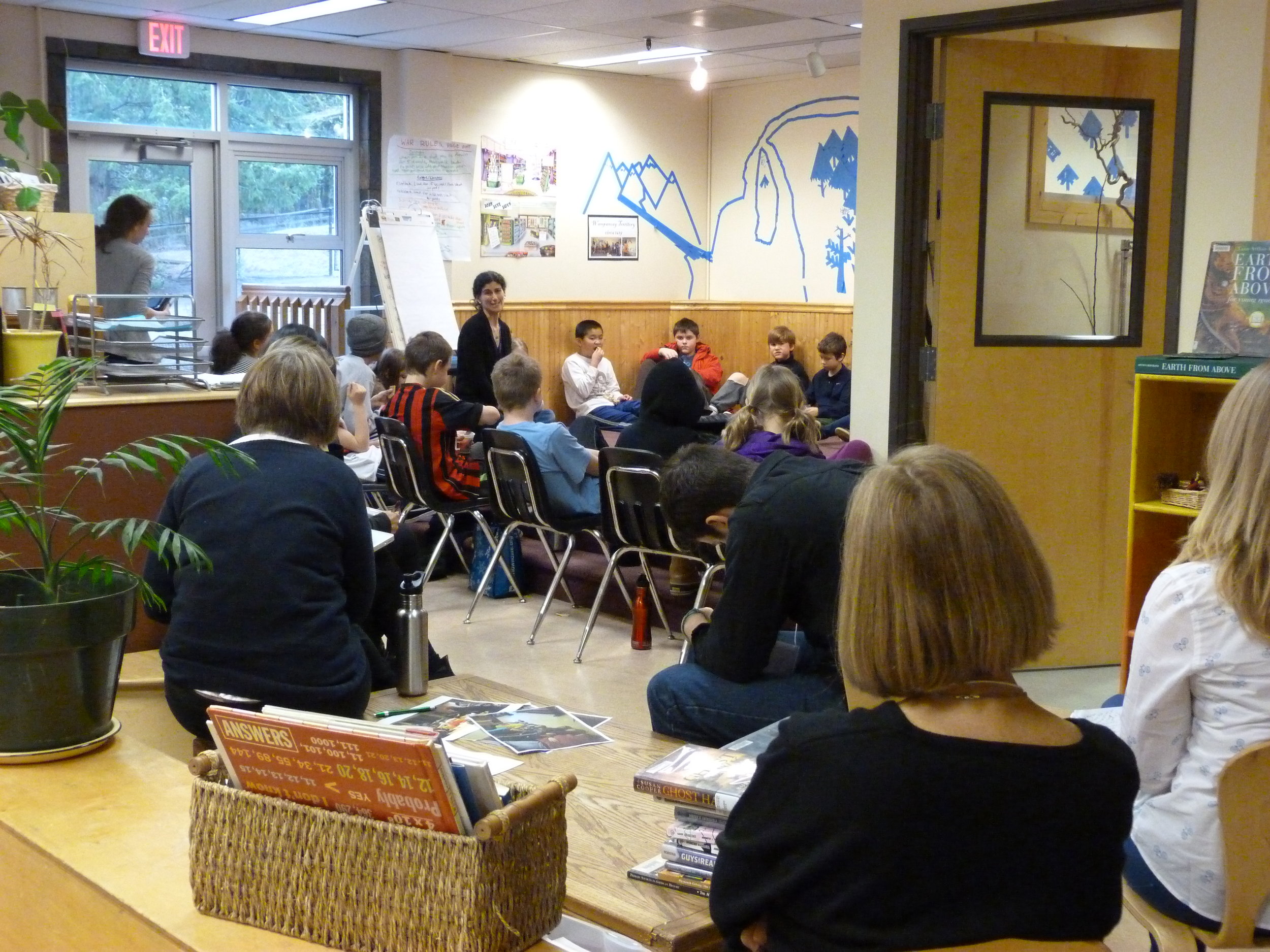 The following post is authored by my friend and colleague, Melissa Tobias. In her graduate work, Melissa is studying both the work of the Reggio Emilia schools for young children and Sustainability Education. This year, she and I are working together in several ways through her program at Lesley University. I was honored that Melissa chose to interview me about my views and practice of leadership. It was helpful for me to think about how I arrived at where I am now, and to talk with Melissa about the evolution that I have experienced. The books and authors that are mentioned here were recommended to me by two mentors of mine, Lori Ryan who I worked with in St. Louis for 20 years and, Linda Henke, who I worked with in my later years in St. Louis. I am forever grateful to both of them for all of their guidance and support in my work.
The following post is authored by my friend and colleague, Melissa Tobias. In her graduate work, Melissa is studying both the work of the Reggio Emilia schools for young children and Sustainability Education. This year, she and I are working together in several ways through her program at Lesley University. I was honored that Melissa chose to interview me about my views and practice of leadership. It was helpful for me to think about how I arrived at where I am now, and to talk with Melissa about the evolution that I have experienced. The books and authors that are mentioned here were recommended to me by two mentors of mine, Lori Ryan who I worked with in St. Louis for 20 years and, Linda Henke, who I worked with in my later years in St. Louis. I am forever grateful to both of them for all of their guidance and support in my work.

Louise Cadwell is currently serving as an adjunct faculty member at Lesley University in the Graduate School of Education. I am enrolled in a Masters Program at Lesley University and one of my courses this semester focuses on leadership. For this course, we were asked to interview someone about their leadership style and inspirations. When considering who to interview, I thought about someone who embodies leadership in multiple ways; as a teacher, an author, a researcher, a consultant, and as a mentor. I chose to interview Louise Cadwell who is serving as an adjunct faculty member at Lesley University in the Graduate School of Education. Louise and I met several years ago at an Education for Sustainability Institute at Shelburne Farms in Shelburne, Vermont. As we are both from St. Louis, we instantly connected and Louise has been a serendipitous mentor for me ever since. The following is an excerpt from my paper based on our interview.
Louise describes her view and practice of leadership as having been influenced by stepping stones...literally steps along the way that have shaped her approach. As her career developed, Louise took time to explore concepts in leadership with the other educators at The College School where she worked as a studio teacher from 1992-2002 and Curriculum Coordinator from 2003-2008. She was particularly influenced by the work of Rick Dufour, Linda Lambert, Peter Senge and Kathy Cramer. After reading books by Dufour, Lambert and Senge, Louise began to develop a better sense of what leadership means in regards to schools and learning communities... highly skilled and highly active teachers building a culture of leadership together. Another influential leadership theory for Louise is asset-based thinking, based on the books and workshops of Kathy Cramer. Each of these authors and learning experiences were important stepping stones along Louise’s path of leadership.
As an education consultant, researcher, and teacher, Louise acts as a leader in many different ways. No matter where she is in the world, or who she is working with, the same principles guide her leadership. Her passion and dedication to collaborate and learn with other educators is what underlies all of the work that she does. In this way, Louise’s work is driven by love; “the other-acknowledging, other-respecting, other-helping drive that reunites the separated” (Kahane, 2010, p. 32). Her depth of knowledge, ability to teach, inspire, and share has gained her credibility and power in the field of education. She believes that listening, asking questions, and encouraging a voice from everyone are keys to effective leadership. These practices help to create a culture of shared ownership among a group. In this way, Louise’s power is evident. As Kahane describes, “Our power is generating and amplifying when we realize ourselves while loving and uniting others” (Kahane, 2010. p. 26). Louise demonstrates a healthy balance of love and power in her leadership style; a passion for knowledge led by self- actualization, an urgency to share knowledge and ideas, balanced with a “power-to” approach of empowering educators to build communities of learning together.
Louise is also an effective leader because she lives an undivided life. Louise acknowledges her whole self; her warm memories of exploring the arts and nature with her mother, as well as memories of having to be courageous to speak in front of groups as she came into her role as a leader. Parker Palmer suggests that leaders are more effective when they share their whole, authentic self (Palmer, 2004). Louise acknowledges that she did not always feel like a leader. With patience and persistence, Louise came into her role as a leader. She is authentic and honest about who she is, and acknowledges that leadership requires constant reflection.
This combination of authentic passion, content area expertise, and a strong theory of leadership grounded in power and love is what has made Louise such a successful leader. The influential learning experiences in her life, especially based on The Reggio Approach and Sustainability Education have inspired a sense of urgency to share, teach and collaborate with others. This sense of urgency has pushed her to take steps forward as a leader in her field. Louise describes her leadership journey as an “evolving expertise fueled by curiosity.” Along this path, Louise has continued to be reflective about who she is as a leader and as a learner, and will continue to serve as an inspiring mentor along the way.
Works Cited:
Kahane, A. (2010). Power and love: A theory and practice of social change. San Francisco, CA: Berrett-Koehler
Palmer, P. (2004). A hidden wholeness: The journey toward an undivided life. San Francisco, CA: Jossey-Bass.

